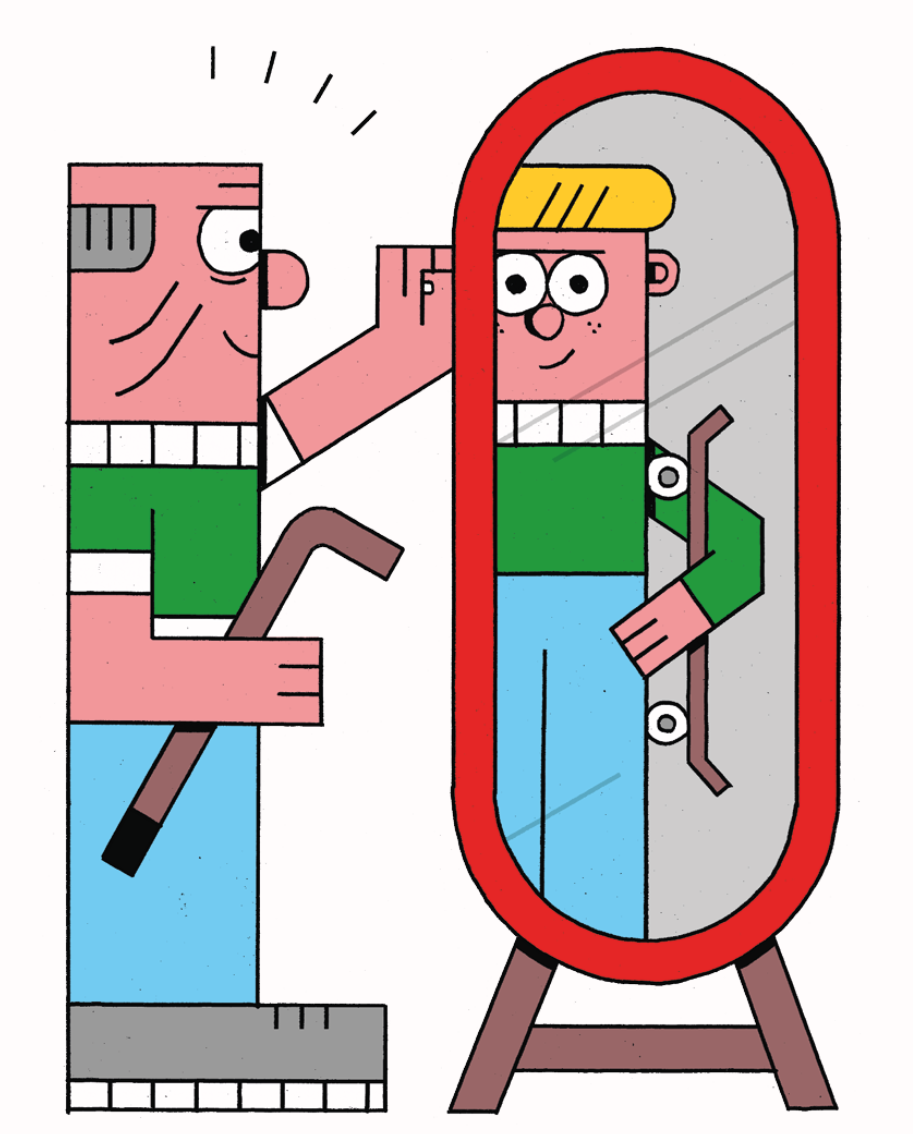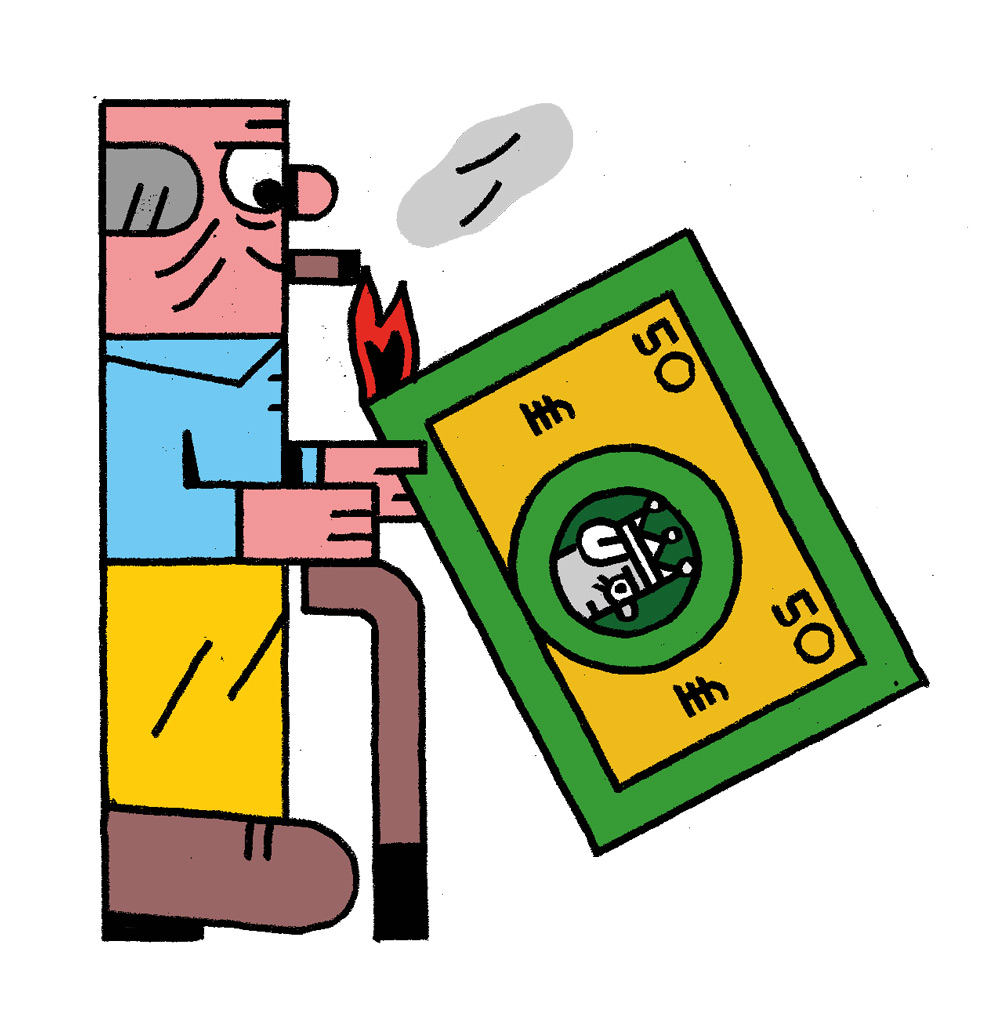Beyond Age
‘Age-appropriate’ is becoming a less meaningful term as attitudes shift. Now acting your age can mean pretty much anything

At least since Shakespeare set down his Seven Ages of Man, which compares life’s progression to the acts of a play, people have tried to make sense of their lengthening lifespans by dividing them into phases. As Shakespeare would have it, one stage is for lovers, another for soldiers, and another is for judges. Finally, ‘second childishness’ awaits.
More recently, the descendants of Freud have attempted similar work. In the 1950s, psychoanalyst Erik Erikson elaborated an eight-stage model of human development, with each stage marked by a crisis and an existential question.
The crises faced between the ages of 18 and 39 are concerned with finding love, and those faced between the ages of 39 and 64 are focused on making life count. People aged 65 and older are said to be looking back on their lives – with contentment or despair, but without a sense of future agency.
While these linear progressions offer the reassuring sense of a natural order, they can seem quaint today. People are now pursuing their passions early in life and staying active and healthy into their later years, enjoying many potentially productive years to be structured however they see fit.
Not withstanding a few moralisers still wagging their fingers at Madonna, there’s no longer any such thing as acting your age.
We now live in a world where an 18-year-old can look back on a career building a media empire, as seen in our story on page 58. At the other extreme, an 86-year-old can achieve viral celebrity and nearly a million Instagram followers with meme-ready fashions and the tagline ‘stealing your man since 1928’. (Follow her @baddiewinkle, if you’re interested).
The associations we make between ages and what behaviour we expect from those age groups is shifting, and the consequences are likely to be dramatic. What happens when teenagers are no longer seen as hapless, inexperienced try- hards, but instead as a valuable source of business acumen and ambition? What happens when elderly people, who often have demanding health requirements and plenty of free time, become leading consumers of electronic technology, rather than the tech-phobic shut-ins they are too often perceived as? How will brands and studios change their marketing and product strategies to meet the demands of a wealthier, more media-savvy middle-aged audience? Suffice to say, young and old alike are in for some drastic changes to how they’re perceived, marketed to and expected to behave.

Entire new life stages are emerging as social norms shift.In 2000, psychologist Jeffrey Arnett proposed the idea of ‘emerging adulthood’, a new stage of life during the late teens and 20s, in a widely cited article published in AmericanPsychologist. He argued that people aged between 18 and 25in developed countries are still exploring their identities and are not yet fully adult.
Only 15 years later, we are on the other side of a global economic crisis that brought down incomes but barely slowed the rising cost of education, healthcare and housing. Now even the notion of 25-year-old adults seems a bit dated. In our recent Age Survey, where over 2,000 respondents from across the Protein Network answered questions relating to their attitudes to age, 87% didn’t consider people to be ‘adults’ until the age of 30. And people also realise this represents a recent shift in perspective: 71% of our audience think that people now reach adulthood much later than in previous generations. We explore the concept of emerging adulthood in greater detail on page 64.
People are also living longer and achieving more at older ages, while embracing the positive aspects of ageing. Our research found that 50% of respondents are looking forward to getting older, while 65% agree that anti-ageing is a negative phrase.
As Viagra nears its 18th year on the market, acceptance of a more ageless approach to sexuality is nearly universal: 91% of our survey respondents don’t agree that sex is only for the young.

And yet two thirds of our audience agree that the majority of advertising is aimed towards young people – suggesting a clear disconnect between how brands speak and what consumers want to hear. Read our story on page 68 for more on how brands and campaigns are engaging with the emerging ‘flat age’ boomer cohort.
While 92% of our audience believe that different generations have different outlooks on life, there’s at least one commonality: all generations seem to be grappling with new perceptions of age and ageing. This represents an unprecedented disruption of norms – but it’s also never been a more interesting time to explore ageing as a cultural force. Read on to see how each generation is responding.
92% of our audience believe that different generations have different outlooks on life

71% of our audience think that people reach adulthood much later than previous generations

91% of people disagree that sex is for the only for the young

86% of our audience believe that older generations have had more financial luck


